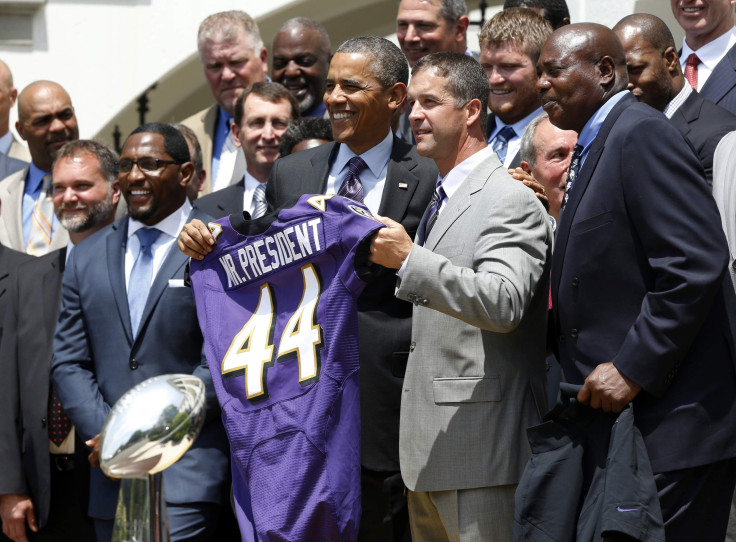NFL Decides Against Promoting Obamacare Health Insurance Enrollments In Response To Republican Criticism

The National Football League announced this week it would not help the White House promote enrollment in private health insurance plans offered soon through exchanges, a key component of the Affordable Care Act health reform legislation of 2010.
A spokesman for the League made the announcement following objection from two Republican Senate leaders who wrote to the heads of six major professional sports organizations, including the NFL, objecting to the White House's overtures to promote the scheme.
Secretary of Health and Human Services Kathleen Sebelius had approached various groups including the NFL to help promote efforts to attract a younger and healthier demographic to enroll in the insurance pools.
"We're having active discussions right now with a variety of sports affiliates" about both paid advertising and partnerships to encourage enrollment, Sebelius told reporters earlier in June.
By partnering with America's preeminent sports league, the administration hoped to market to its audience, especially the large numbers of young, healthy men, exactly the type of uninsured people who are most coveted by insurers — paying into the system without necessarily taking out.
However, Sens. Mitch McConnell of Kentucky and Sen. John Cornyn of Texas warned sports leagues about participating in such marketing. "Given the divisiveness and persistent unpopularity of the health care law, it is difficult to understand why an organization like yours would risk damaging its inclusive and apolitical brand by lending its name to its promotion," the senators wrote.
Although Sebelius had said earlier this month that NFL executives had been "very actively and enthusiastically engaged" in the possible promotion, they apparently had a change of heart.
NFL spokesman Greg Aiello told reporters the League would not be participating in any promotion of Obamacare, as described by Sebelius.
"We have responded to the letters we received from members of Congress to inform them we currently have no plans to engage in this area and have had no substantive contact with the administration about [the health-care law's] implementation," he said.
Once final provisions of the Patient Protection and Affordable Care Act of 2010, commonly known as "Obamacare," take effect next year, government and private insurance companies will want to attract young, healthy enrollees to keep premiums from rising dramatically, offsetting increased expenses as federal law prevents discrimination against those with preexisting conditions.
In the classic insurance pool, the strong subsidize the weak, and attracting healthy enrollees becomes critically important. Sebelius pointed to the marketing precedent in Massachusetts, which instituted a health care law in 2006 led by then Gov. Mitt Romney upon which the federal law was largely based. Then, the city's beloved Boston Red Sox filmed a commercial promoting the state's health care law.
"We know the Red Sox were incredibly effective in Massachusetts ... so it's a logical place to go," Sebelius said.



























